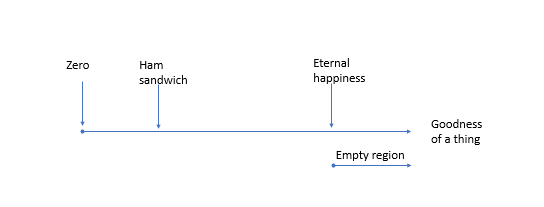This is an informal fallacy where a word or phrase is used in different senses within the same line of argument.
“Don’t trust atoms – they make up everything”
Here the equivocation is in interpretation of the term “make up” – It can mean to fabricate with intent to deceive (leading to being seen as untrustworthy). It can also mean to comprise.
Some equivocations are a little harder to interpret. Try this one:
“Nothing is better than eternal happiness. A ham sandwich is better than nothing. Therefore a ham sandwich is better than eternal happiness.”
In this case the first “nothing” represents the absence of points beyond “eternal happiness” on a scale of good things. In the second case, it represents the single point at the origin of the scale of good things. “Nothing” has a different meaning in each case.

(For other “anomalous” ordering preference scales see Intransitive Decision Making)
It may appear that equivocation is rather an obscure concept but in my experience a high proportion of the effort in consulting engagements was to identify and resolve equivocation between different parties. The most common culprit words were Strategy, Plan, Design and Solution – each common words with diverse meanings and interpretations and so easy to use the same word and mean different things.
The most common scenario went something like (person A) “we need A, B, C – and we call that a strategy”. (Person B) “we do B, C, D and we call that a strategy”. But in the conversations it becomes a project to develop ‘a BC Strategy’ and they think they have an agreement.